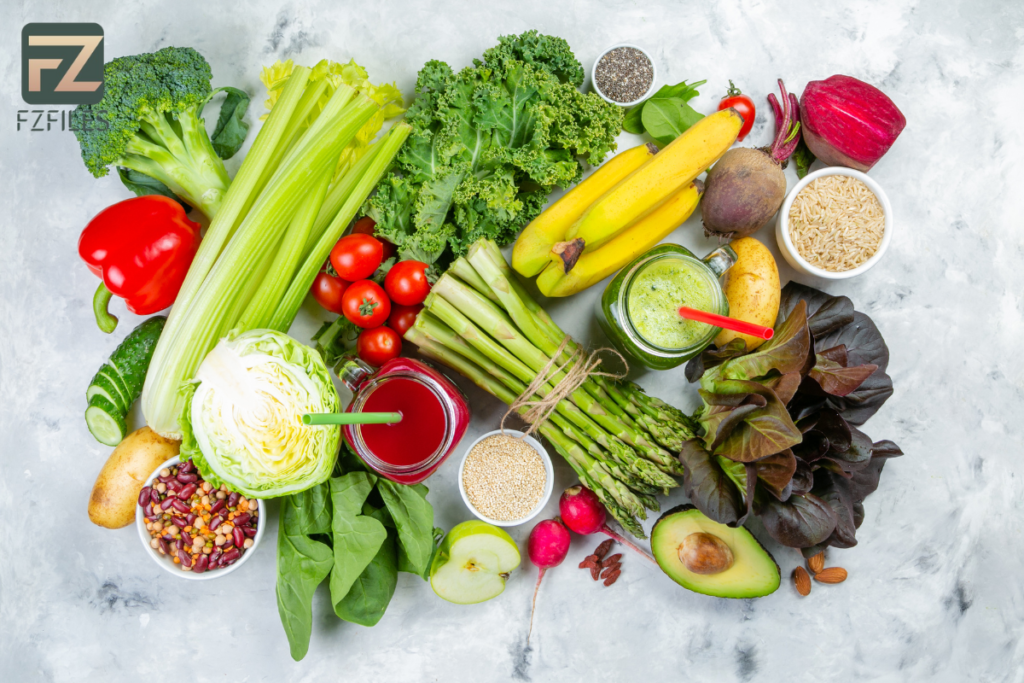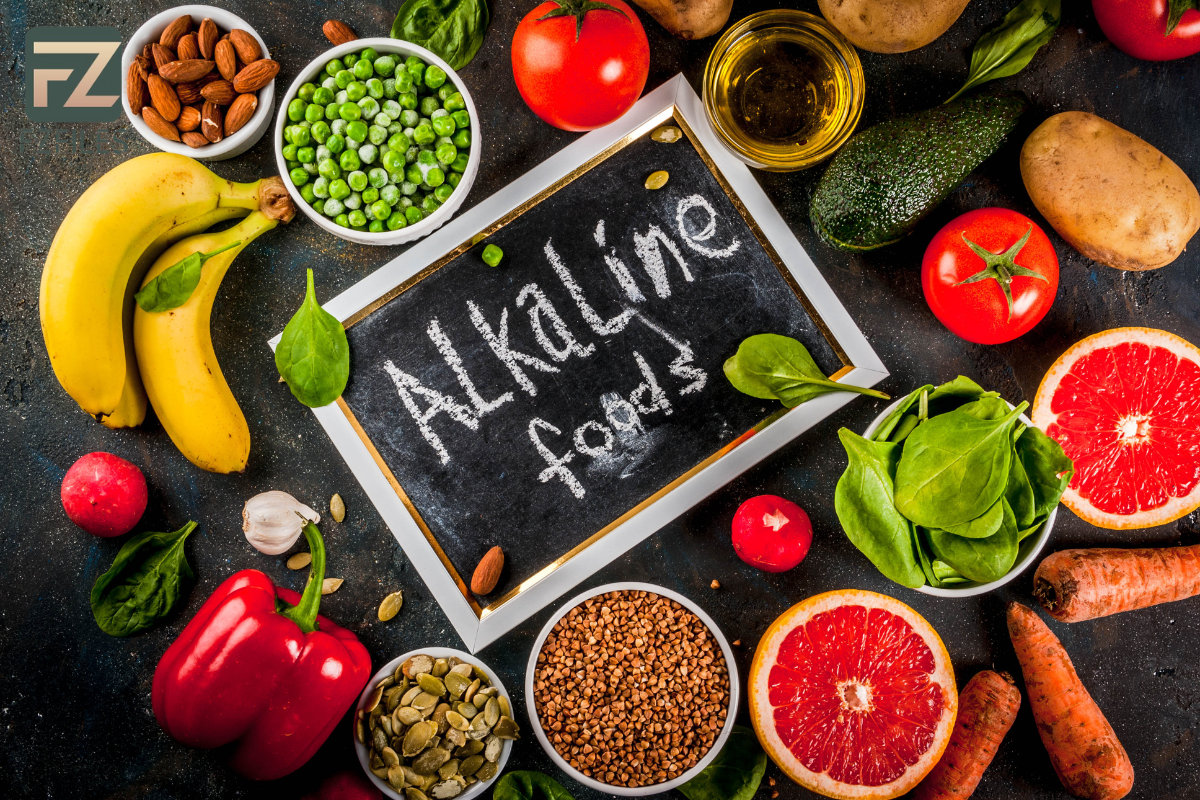Understanding the Alkaline Diet
The alkaline diet is based on the concept that certain foods can affect the body’s pH balance. The human body is slightly alkaline, with a blood pH level of around 7.4. Proponents of the alkaline diet believe that eating a diet high in alkaline foods can help maintain this balance, while a diet high in acidic foods can disrupt it, potentially leading to health issues.
The Science Behind the Alkaline Diet
The pH scale ranges from 0 to 14, with 7 being neutral. Foods are classified as acidic, neutral, or alkaline based on their pH levels. Acidic foods have a pH level below 7, while alkaline foods have a pH level above 7. The alkaline diet encourages the consumption of more alkaline foods, such as fruits and vegetables, and limits acidic foods, like meat, dairy, and processed foods.
Common Myths and Misconceptions
There are several myths surrounding the alkaline diet. One common misconception is that the diet changes the pH of the blood. In reality, the body’s pH is tightly regulated by the kidneys and lungs, and diet has little impact on blood pH. However, the diet may influence the pH of urine, which is often used as an indicator of the body’s pH balance.
Benefits of an Alkaline Diet
Improved Bone Health
One of the primary benefits of the alkaline diet is its potential to improve bone health. Some studies suggest that a diet high in acidic foods can lead to bone loss and increase the risk of osteoporosis. By consuming more alkaline foods, individuals may help preserve bone density and reduce the risk of fractures.
Enhanced Muscle Function
The alkaline diet may also improve muscle function. A diet high in acidic foods can lead to muscle wasting and decreased muscle performance. By focusing on alkaline foods, individuals may support better muscle function and reduce the risk of muscle loss as they age.
Reduced Risk of Chronic Diseases
Proponents of the alkaline diet believe it can reduce the risk of chronic diseases such as cancer, heart disease, and diabetes. While more research is needed to confirm these claims, some studies suggest that a diet rich in fruits and vegetables can lower inflammation and improve overall health, potentially reducing the risk of chronic illnesses.
Weight Loss and Management
The alkaline diet may also aid in weight loss and management. By emphasizing whole, unprocessed foods, the diet can help individuals reduce calorie intake and maintain a healthy weight. Additionally, the high fiber content of fruits and vegetables can promote satiety and prevent overeating.
Sample Alkaline Diet Meal Plans

Understanding Alkaline Foods
To create a successful alkaline diet meal plan, it’s essential to understand which foods are considered alkaline and which are acidic. Here are some examples of each:
Alkaline Foods
- Fruits: Apples, bananas, oranges, lemons, avocados
- Vegetables: Spinach, kale, broccoli, cucumbers, bell peppers
- Nuts and Seeds: Almonds, chia seeds, flaxseeds
- Legumes: Lentils, chickpeas, black beans
Acidic Foods
- Meat: Beef, pork, chicken
- Dairy: Milk, cheese, yogurt
- Processed Foods: Chips, cookies, fast food
- Beverages: Coffee, soda, alcohol
Sample Alkaline Diet Meal Plan
Breakfast
- Green Smoothie: Blend spinach, kale, avocado, banana, and almond milk.
- Oatmeal: Cook oats with almond milk, topped with berries and a sprinkle of chia seeds.
Lunch
- Quinoa Salad: Mixed greens, quinoa, cherry tomatoes, cucumbers, and a lemon-tahini dressing.
- Vegetable Stir-Fry: Broccoli, bell peppers, carrots, and tofu sautéed in olive oil with garlic and ginger.
Dinner
- Baked Salmon: Serve with a side of roasted sweet potatoes and steamed asparagus.
- Stuffed Bell Peppers: Bell peppers stuffed with quinoa, black beans, corn, and tomatoes.
Snacks
- Fruit: Apples, oranges, or berries.
- Nuts: A handful of almonds or walnuts.
- Veggie Sticks: Carrot and celery sticks with hummus.
Foods to Eat and Avoid on the Alkaline Diet
Alkaline Foods to Eat
Fruits and Vegetables
- Leafy Greens: Spinach, kale, Swiss chard
- Cruciferous Vegetables: Broccoli, cauliflower, Brussels sprouts
- Fruits: Apples, bananas, berries, citrus fruits
Nuts and Seeds
- Nuts: Almonds, walnuts, cashews
- Seeds: Chia seeds, flaxseeds, sunflower seeds
Legumes and Grains
- Legumes: Lentils, chickpeas, black beans
- Grains: Quinoa, brown rice, millet
Other Alkaline Foods
- Tofu and Tempeh: Plant-based protein sources
- Herbal Teas: Green tea, chamomile tea, ginger tea
Acidic Foods to Avoid
Meat and Dairy
- Red Meat: Beef, pork, lamb
- Poultry: Chicken, turkey
- Dairy Products: Milk, cheese, yogurt
Processed and Junk Foods
- Fast Food: Burgers, fries, pizza
- Sugary Snacks: Cookies, cakes, candy
- Salty Snacks: Chips, pretzels
Beverages
- Caffeinated Drinks: Coffee, soda, energy drinks
- Alcohol: Beer, wine, spirits
Tips for Successfully Following an Alkaline Diet
Planning and Preparation
One of the keys to successfully following an alkaline diet is planning and preparation. Take the time to plan your meals and snacks for the week, and prepare ingredients in advance to make it easier to stick to the diet.
Staying Hydrated
Staying hydrated is essential for overall health and can help maintain the body’s pH balance. Aim to drink at least eight glasses of water a day, and consider adding lemon or cucumber slices for an extra alkaline boost.
Listening to Your Body
It’s important to listen to your body and make adjustments as needed. If you experience any negative symptoms or find the diet too restrictive, consider working with a registered dietitian to develop a more balanced and sustainable eating plan.
Incorporating Exercise
Regular exercise can complement the alkaline diet by promoting overall health and well-being. Aim for at least 30 minutes of physical activity most days of the week, and choose activities you enjoy to make it easier to stick with.
Seeking Support
Consider joining a support group or online community of individuals following the alkaline diet. Sharing experiences, recipes, and tips can provide motivation and encouragement to stay on track.
